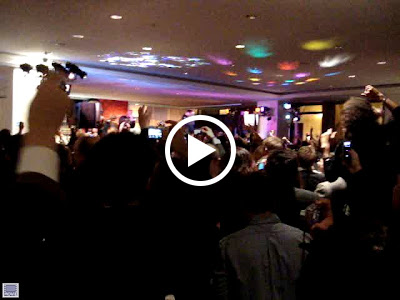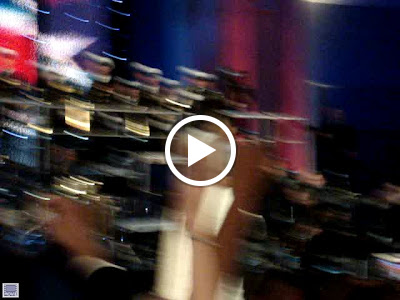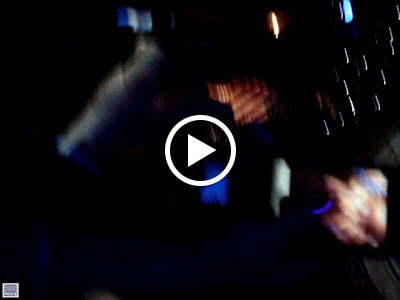Is Anybody Really Looking Forward to 2009?
Rarely does the start of a new year bring with it such dramatic change to the global landscape. Virtually overnight, we have been asked to adapt to a worldwide economic crisis, massive layoffs at home, renewed turmoil in the Middle East, and a new, and path-breaking, presidential administration. Given the pace of such change, it may be hard to really predict what could happen in 2009, though suffice it to say, I hope that things only improve from here on out.
Like last year, this blog posting reflects my own predictions for the top ten trends that will take place in 2009. The trends I chose go beyond merely stating the obvious, and were arrived at through my reading of headlines and the articles behind them, my own observations, and some educated sounding guesses. None of these predictions are guaranteed to occur, but all I believe capture at least a sense of what’s in store for us over the next year.
ECONOMY
The Comeback Kid: In the wake of the economic downturn, Thomas Maynard Keynes, the poster-child economist credited with pulling this country out of the Great Depression, is going through a stunning revival. Over the next year, government economists will lean heavily on Keynesian theories, particularly the notion that deficit spending is the best way to save an economy already in shreds, from collapsing entirely. With a 10 percent unemployment rate a distinct possibility for the first time since the Great Depression, government spending has already been deployed to prop up financial institutions and will next be aimed at creating jobs through public works projects. In addition to a marked increase in name recognition, expect to see Keynes t-shirts, caps, and bumper stickers, as well as “Candy Keynes” appearing in your nearby stores very soon.
Start Spreading the News: These days, New York City is looking more like the “top of the heap” than the “king of the hill,” and not just because I’m no longer living there (though I’d like to think that’s a part of it). Manhattan’s venerable financial and legal industries are on the verge of collapse, making New York City among the worst of the areas hit by the economic crisis. The construction boom that Mayor Bloomberg oversaw the last few years has ground to a halt, and Manhattan real estate is slipping off the edge of a sizeable- looking cliff. By the end of the year, Wall Street will no longer be a corporate mecca, but rather a jumble of mostly government owned investment banks, combined with tourist traps and strip malls where stock brokers and high powered lawyers used to buy their coffee and wolf down their lunch. Plus, with a new, hip, president installed, and with at least some job openings to offer residents, Washington D.C. is jumping up the ladder of live-able cities, along with Chicago, from where the aforementioned hip president just moved. Now, if only Liza Minnelli or Frank Sinatra could write a new song....
POLITICS:
Croissant Diplomacy: While Barack Obama’s ascendancy to the presidency has inspired goodwill towards Americans abroad, don’t expect the United States to resume its position as the leader of global diplomacy overnight. Before that happens, the United States will have to repair ties damaged during the Bush years, extricate itself from at least one war (Iraq) and possibly two (Afghanistan), and revive everyone’s faith in the principles of capitalism (unlikely, given the state of our economy). In the meantime, French president Nicolas Sarkozy is busily positioning his country to become the top chef in the international diplomatic kitchen. Sarkozy has some distinct advantages working in his favor: he has managed to insert himself into virtually every major recent international crisis in the last year; he and his wife are extremely telegenic; France's economic model of democratic socialism looks more attractive to foreign countries than America's capitalism right now; and, Arab governments in the Middle East - where most of the international crises are currently taking place - are much more likely to trust France’s word over the United States. The fact that French food and wine are irresistible seals the deal for Sarkozy to become "le chef de cuisine" of global diplomacy.
The “O” Stands for Teamwork: Former President Bush strictly adhered to the concept of the strong “unitary executive,” the idea that congress cannot interfere with any executive decisions and, generally, that what the executive says, goes. President Obama has made clear from the outset that he will not rule with such presumed authority, even though he swept into office with a mandate much greater than President Bush ever enjoyed. Obama’s determined collaborative approach to governing suggests that he won’t step on as many toes as his predecessor, and that aspects of his campaign agenda — a sweeping economic stimulus bill, drastic health care reform, new education programs, and a shift in foreign policy — will not be forced onto Congress’s collective will. On the positive side, this approach could lead to widespread bipartisan support for the president’s legislative agenda. On the down side, collaboration could lead to watering down the content and impact of Obama’s planned reforms. As is clear already, Congress is testing the strength of its own hand, and individual legislators on both the Democratic and Republican sides of the aisles are jockeying for power in setting the course of future legislation. Obama’s ability to soothe egos, know when to make compromises and when to stand his ground, will ultimately determine the success or failure of his ambitious reform program for his first year in office.
The Supreme Shuffle: Because its justices serve for life, the Supreme Court is generally considered to be insulated from the daily push and pull of the political arena. Nevertheless, during his eight years in office, former President Bush appointed two justices to the Court (John Roberts and Samuel Alito), and his appointments solidified the Court’s current conservative outlook. That outlook is going to start shifting, but only slowly, in 2009. It’s improbable that any justice will retire before the 2010 term (Justices Stevens, Kennedy and Souter are the most likely candidates to retire when that happens), however, President Obama will begin to shape the kinds of cases that appear, and, perhaps more importantly, don’t appear, before the Court, through the actions of his attorney general and solicitor general and through his judicial appointments to the bench in the lower federal courts.
TECHNOLOGY:
Twit. Twit. Twitter: The last few years have seen an explosion of new communication mediums and social networking forums. Facebook replaced Friendster; Linked-In replaced that old-fashioned desktop fixture called a rolodex, gchat replaced AOL instant messenger, and the blogosphere is well on the way to replacing print newspapers. Next up in the on-deck circle is Twitter. Twitter, by its own description, is an online telegraph system designed for users to let their readers know the answer to the question “What Are You Doing” as often as they want. Bloggers and journalists are increasingly using the forum to telegraph running news commentary in real time. Individuals and businesses are also using it as a short hand way of keeping in touch with friends and contacts without having to resort to “old-fashioned” forms of communication like emails, letters and phone calls. At this rate, the next step after twitter will be a technology that does away with the proactive part of communication entirely, and simply transmits our brain waves to a pre-subscribed list of interested parties at set intervals.
A Worm in the Apple: IBM and Microsoft owned the 1990s. Though a small cult-like following refused to give up their beloved Macintosh computers, mainstream America settled happily for generic PCs, which licensed IBM’s hardware and came standard with a Windows operating system. After a few quiet years in PC-land’s shadow, however, Apple took increasingly large bites out of Microsoft and IBM’s turf. Apple began by manufacturing innovative and eye-catching Macintosh computers in the late 1990s. Then, the company scored a whopping hit with its iPod and accompanying iTunes music platform. Finally, Apple developed software that allowed users to switch back and forth between Windows and its own operating system on its Macintosh computers.
2009 will unfortunately reveal the worm at the core of the Apple. Apple is facing depressing news on numerous fronts. The company’s CEO, Steve Jobs, has taken a leave of absence for health related issues and it’s unclear when, if ever, he’ll be able to return. Though Jobs is considered a true visionary, he’s been shortsighted in not training a new CEO to ensure a smooth transition after his departure. Moreover, while successful, the iPhone is not nearly as ubiquitous as the iPod, and the iPhone is facing stiff competition from other, similar “smart” phones, such as Verizon’s Blackberry Storm. Perhaps symbolically, a worm virus recently attacked Macintosh computers, something that was previously considered impossible. All of these factors combined are starting to make one of the biggest players in the computer industry look like a very bruised Apple.
FASHION:
Simple Elegance: Even the high fashion world isn’t immune from the economic crisis, and celebrities are not going to want to show off extravagant wealth on the red carpet when viewers at home are struggling to decide between buying new clothes for the family or paying the electric bill. Fashion designers are left in a bind, forced to try to be creative on a tighter budget (or at least the appearance of one). The result this year will be a move towards “simple elegance” in couture fashion. Couture clothing on the red carpet and the catwalk will feature simpler outfits, solid colors, and straighter lines, and its wearers will don less makeup and jewelry. Though the trend towards simple elegance won't necessarily lead to cheaper prices, it will at least make it easier for us commoners to imagine ourselves taking that marvelous stroll down the catwalk.
Goodwill Hunting: Outside the world of couture fashion, “bargain shopping” will become as popular a catch phrase as “rad” was in the 1980s. Outlet stores are sure to benefit, and thrift shops and consignment stores, like Goodwill and Salvation Army stores, will have to hire traffic cops just to control the rush of people down their aisles.
ENTERTAINMENT:
The NWL (National Wii League): Video game consoles have been on the shelves of American home entertainment systems for years. Nintendo’s Wii console, which launched in 2006 to favorable reviews, is now becoming more than a popular console, it’s revolutionizing the video game experience. Wii players have been able to use the Wii Sensor Bar and Wii Remote to swing at tennis and ping pong balls, conduct an orchestra, and chop and mix vegetables at high speed to win a cooking competition for some time now. 2009, however, will feature the proliferation of competitive Wii games and tournaments, which are also starting to replace the real thing. By 2012, no one will be surprised if WII games are certified as official Olympic sports. Until then, expect an increasing number of Americans to get their daily regimen of exercise, food and music in front of their Wii console.












